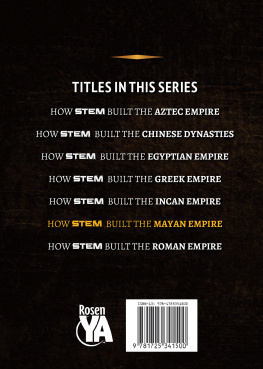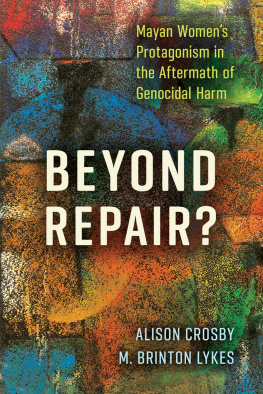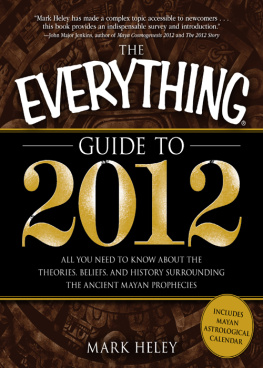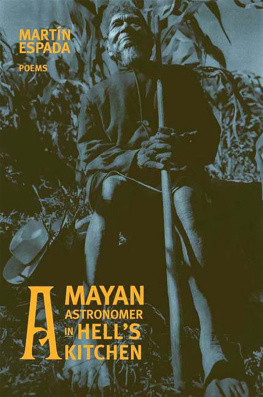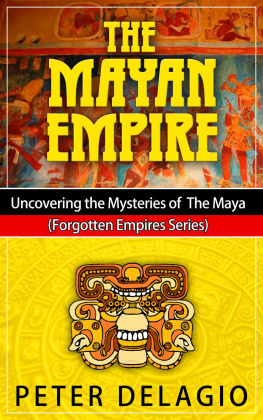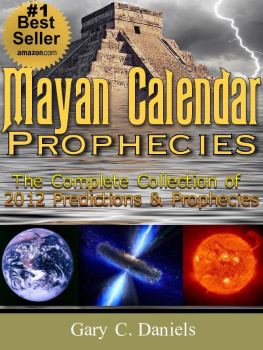Published in 2006 by | Published in Great Britain by |
Routledge | Routledge |
Taylor & Francis Group | Taylor & Francis Group |
270 Madison Avenue | 2 Park Square |
New York, NY 10016 | Milton Park, Abingdon |
Oxon OX14 4RN |
2006 by Taylor & Francis Group, LLC
Routledge is an imprint of Taylor & Francis Group
Printed in the United States of America on acid-free paper
10 9 8 7 6 5 4 3 2 1
International Standard Book Number-10: 0-415-94559-3 (Hardcover) 0-415-94560-7 (Softcover)
International Standard Book Number-13: 978-0-415-94559-2 (Hardcover) 978-0-415-94560-8 (Softcover)
Library of Congress Card Number 2005024645
No part of this book may be reprinted, reproduced, transmitted, or utilized in any form by any electronic, mechanical, or other means, now known or hereafter invented, including photocopying, microfilming, and recording, or in any information storage or retrieval system, without written permission from the publishers.
Trademark Notice:Product or corporate names may be trademarks or registered trademarks, and are used only for identification and explanation without intent to infringe.
Library of Congress Cataloging-in-Publication Data
Carey, David, 1967
Engendering Mayan history : Kaqchikel women as agents and conduits of the past, 1875-1970 / by David Carey, Jr.
p. cm.
Includes bibliographical references and index.
ISBN 0-415-94559-3 (hb : alk. paper) -- ISBN 0-415-94560-7 (pb : alk. paper)
1. Cakchikel women--Social conditions. 2. Cakchikel women--Ethnic identity. 3. Cakchikel Indians--History. 4. Feminism--Guatemala. 5. Guatemala--Social conditions. I. Title.
F1465.2.C3C36 2005
972.8100497423--dc22
2005024645
| Visit the Taylor & Francis Web site at
http://www.taylorandfrancis.com and the Routledge Web site at
http://www.routledge-ny.com |
Chi re Ixqanil: xabn chwe chi xinna chi wachoch. Chi re Ixk'at, Ixch'onk, Ixkawoq, konojel ri Kaqchikela ixoqi, xtani chi xinkito rik'in re samaj re: janila k'as ijolom, nim iwetamab'al, tz iwnima, jebl ina'oj. Chi re Sarah: yatinwajo rik'in wonojel nuk'ux, wanima, nuk'aslem.
Acknowledgments
In an ideal world, the authors of this book would be the Kaqchikel research assistantsIxk'at, Ixch'onk, Ixkawoq, Ix'ajpu, and Ix'eyand informants whose ideas guide it. In large part due to the economic, social, and political structures that these women recognize in their historical narratives, they do not have the resources or time to write a book about their historical perspectives. And because of Guatemala's continued political volatility and recurrent human rights abuses, they must remain anonymous. To them goes my deepest gratitude for their generosity and hospitality. Though the distinct ways in which they conceptualize the past, present, and future have influenced my own worldview (and certainly influenced the theoretical structure of this book), their courage, resilience, and humor in the face of almost unimaginable adversity is what has inspired me most.
The families with whom I lived in San Juan Comalapa (henceforth Comalapa), Tecpn, San Jos Poaquil (henceforth Poaquil), Antigua, and Guatemala City greatly enriched my life. Ixq'anil, Jun Ajpu, Ixim Nik'te, B'eleje Ey, Lisette, Ana, Teri, and Victor always made me feel as if I were in my own home. Ixte, Ix'aq, Lajuj Ey, and their extended family also filled my life with many hours of pure joy in Comalapa. Sadly, two dear friends from Guatemala, Waqi Kej and Marvin, died suddenly while I was researching and writing this book.
In Guatemala City, the Archivo General de Centro Amrica (AGCA) and the Hemeroteca-Biblioteca Nacional staffs turned a cold building into a warm and welcoming environment. I especially want to thank Anna Carla Ericastilla, who brought documents to my attention that I otherwise would have missed. Her knowledge of the AGCA is boundless. Likewise, the staff at the Centro de Investigaciones Regionales de Mesoamrica (CIRMA) in Antigua was equally helpful. CIRMA's photograph archivist, Toms Chitic, patiently located and put into context photographs of Kaqchikel women. A number of municipal officials and employees generously aided my search for documents in the municipal archives of Comalapa, Patzica, Tecpn, Poaquil, San Antonio Aguas Calientes, and Santa Catarina Barahona. The staffs at Tulane University's Latin American Library, particularly David Dressing, and the University of Berkeley's Bancroft Library always responded efficiently and graciously to my varied requests.
A number of institutions generously provided financial support for this research: the Fulbright Program for Latin America and the Caribbean, the American Historical Association (AHA), the University of Southern Maine (USM), and the John Anson Kittredge Educational Fund. Lee Woodward, Jr., Judie Maxwell, and Rod Camp wrote numerous letters in support of my pursuit of research funding. The USM History Department faculty strongly supported my research and writing. Constructive criticism from colleagues in the USM Provost's Summer Writing Seminar continues to enhance my writing skills. In some ways, this project began in Chile in 1990 where Gina Prez and Liesl Haas first challenged me to apply feminist analysis and action in a Latin American context.
As the project progressed, a number of scholars closely read and offered comments and critiques that sharpened the manuscript and challenged me to pursue new directions or to buttress existing ones. Kevin Gosner, Allen Wells, Rick Adams, David McCreery, Susan Kellog, Peter Winn, Todd Little-Siebold, Ann Blum, Ardis Cameron, Adam Tuchinsky, Diana Long, Wendy Chapkis, Ann Dean, and Kathryn Quinn-Sanchez all offered insightful feedback. In addition to offering sound editorial advice, Bill Nez generously shared some of his research findings with me. The many anonymous reviewers of articles and particularly those contracted by Routledge pointed to areas where I could hone my arguments and make this book more thoughtful. Walter Little, who forfeited his anonymity as a reviewer for Routledge, closely read the entire manuscript and offered particularly constructive criticism and support. Likewise, discussions with a number of friends committed to Guatemala including Alberto Esquit, Edgar Esquit, John Watanabe, Servando Hinojosa, Stacy Schwartzkopf, and Christa Little-Siebold helped me to envision my research and arguments in different ways. I presented parts of this work at Harvard University, the State University of New York, Albany, University of Illinois at Urbana-Champaign, College of the Atlantic, Tulane University, USM, and the AHA annual conference. Praise and criticisms from those audiences encouraged me to move forward and fortify my analysis.



